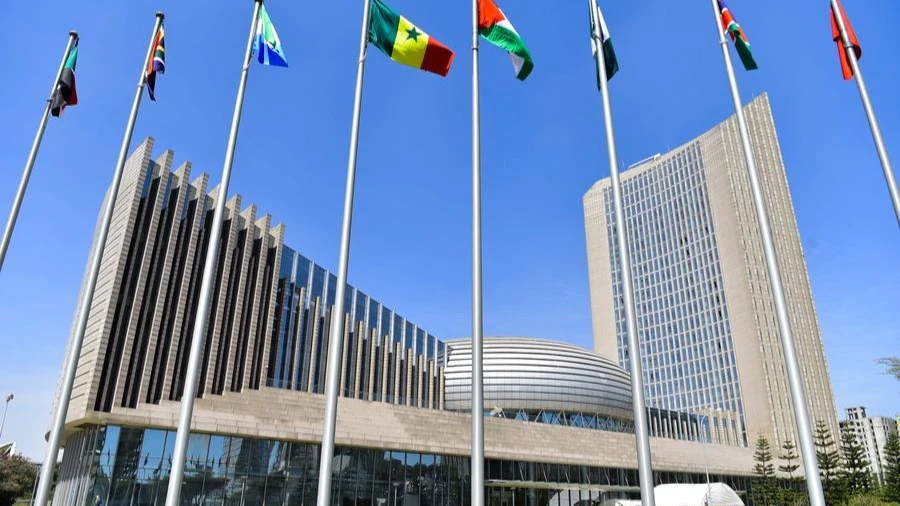Digital payments vital for promoting cashless economy across East Africa

The adoption of digital payments is rapidly transforming economies across East Africa, covering Kenya, Tanzania, Uganda, Burundi, South Sudan, and Somalia.
As cashless transactions gain traction, businesses and consumers are experiencing greater efficiency, security, and financial inclusivity.
A recent study conducted by Foresight Research Analytics in October 2024 focused on Tanzania, highlighting significant opportunities for small and medium-sized enterprises (SMEs) in the digital payments space.
SMEs play a crucial role in economic growth, job creation, and income generation and enabling them with digital payment solutions can enhance their efficiency and profitability.
Specifically, 64 percent of these businesses consider accepting card payments as a strategic investment that can contribute to their future business growth, cost cutting and security.
According to Chad Pollock, Vice President & General Manager for Visa East Africa, the study surveyed 250 respondents, including micro, small, and emerging businesses, with 65 percent indicating that adopting digital payments has helped reduce costs, improve transparency, and enhance security.
“We will make sure that our solutions tapping into their needs, because we also recognize the values that SME deliver from economic perspective, from jobs perspectives, and income generation perspectives,” he said during an exclusive interview in Dar es Salaam on Tuesday.
“Businesses often face concerns related to security risks, theft, and accounting errors associated with handling cash. Digital payments address these issues by providing a more secure and traceable financial ecosystem.”
Middle-income consumers in urban neighborhoods are the most frequent users of digital payments.
However, he said the widespread adoption remains limited due to inadequate infrastructure, lack of awareness, and concerns over transaction costs.
“Because for us, we see major opportunities for SMEs not just in Tanzania but across sub Saharan Africa, he said.
To bridge this gap, he said, partnerships between financial institutions, payment service providers like Visa, and governments are essential.
“Ensuring that local merchants have access to QR code-enabled devices, mobile payment solutions, and smart card technologies will drive further adoption,” he noted.
Pollock said in order accelerate the transition towards a cashless economy across East Africa, financial institutions and governments must collaborate on educational campaigns to raise awareness of digital payment benefits.
Additionally, he explained, addressing the issue transaction costs of which Bank of Tanzania (BoT) is currently doing, and enhancing security measures will encourage more consumers and businesses to shift from cash-based transactions to digital payments.
Global payment providers including Visa are working closely with governments, financial institutions to promote universal payment acceptance, including currency exchange solutions for cross-border transactions.
The long-term strategy involves fostering partnerships to strengthen market infrastructure, making digital payments more accessible and reliable.
“Through our global virtual card, consumers can pay for subscriptions for cross border payments and it allow them to extend their reach. We are looking to partner with MNOs, across EA to become part of the group,” he said.
Impact of social media and fintech innovation
Social media platforms are playing an increasing role in financial education and digital payment promotion.
He explained that engaging social media influencers to demystify digital payments can drive awareness and adoption, especially among younger generations.
Fintech companies are also key players in expanding financial inclusion.
While traditional financial institutions provide a strong network foundation, fintech firms offer innovative solutions that reach underserved markets, particularly in remote areas where conventional banking infrastructure is limited.
Collaboration between banks, fintech companies, and mobile network operators (MNOs) is crucial to ensuring seamless digital payment integration across East Africa.
Enhancing security in digital transactions
Security remains a top concern for businesses and consumers alike. Many people still prefer cash due to fears of fraud and cybercrime.
To address these concerns, Visa and other financial service providers have invested in advanced risk management systems, including AI-driven fraud detection, behavioral analytics, and robust risk operating systems (ROS).
These technologies help monitor transactions in real-time, flagging suspicious activities and preventing unauthorized transactions.
For instance, if a card is used for an unusual purchase, such as in a casino, security systems can automatically flag the transaction and prompt user verification.
Mobile-based solutions like virtual cards, QR codes, and app-based payment authentication further enhance security by reducing reliance on physical cash.
The future of digital payments in East Africa
Pollock believes that digital economy in East Africa remains largely untapped, presenting a vast opportunity for growth.
However, government services are increasingly moving towards digital platforms, and SMEs are gradually integrating electronic payments into their business models.
But, he asserted that the key to sustaining this momentum lies in building strong partnerships between payment service providers, fintech firms, and regulatory bodies.
As financial inclusion expands and digital infrastructure improves, East Africa is poised to become a leading region in cashless transactions.
The journey towards a fully digital economy requires continued investment, innovation, and collaboration, ensuring that businesses and consumers alike reap the benefits of a seamless and secure payment ecosystem.
With a concerted effort from all stakeholders, the region can unlock the full potential of digital payments, driving economic growth and financial empowerment for millions.
Looking into the future, Pollock said through partnership between visa, financial institutions and government, there is needs of ensuring local merchants have devises that capture QR Code to enhance digital payment adaptation.
Top Headlines
© 2025 IPPMEDIA.COM. ALL RIGHTS RESERVED

























